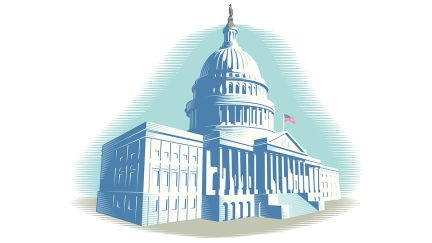For more stories like this, sign up for the PLANADVISERdash daily newsletter.
Efforts to Boost Americans’ Retirement Savings Continue at Full Speed
Congressional leaders and asset management executives say they are committing to furthering legislation to expand coverage and boost savings
A Securities Industry and Financial Markets Association (SIFMA) webinar earlier this week highlighted several efforts being made by congressional leaders and asset management firms, including Natixis and Edward Jones, to draw policymakers’ attention to key retirement research findings, expand the dialogue about the pressing need to help Americans better prepare for retirement, and pass additional legislation to expand retirement plan coverage and boost savings.
Kicking off the webinar, Ken Bentsen, SIFMA president and CEO, said one-quarter of people who have not retired have no money saved at all for retirement, and another 40% are not on the right track to retire successfully. He also noted that the laws governing retirement plans today are rooted primarily in the 1970s tax code, which provided incentives for people to save money in qualified (i.e., pre-tax) accounts. Bentsen said that in the 50 years since these laws were passed, retirement plan advisers’ role in guiding Americans and retirement plan sponsors to save for retirement has increased, and new proposals could help workers save more.
U.S. Rep. Jackie Walorski , R-Indiana, said she is grateful for ongoing efforts by investment management firms, broker/dealers (B/Ds) and others in the retirement planning industry to help Americans understand the importance of saving for retirement—and the need to do something about it.
This is “especially true as we recover from the pandemic,” said Walorski, who is a member of the House Ways and Means Committee. “There have been unexpected financial consequences of the pandemic,” she noted, referring to the layoffs, furloughs and reduced hours that many Americans experienced.
On a positive note, Walorski said the proposed “SECURE Act 2.0”—formally known as the Securing a Strong Retirement Act—would expand automatic enrollment. Furthermore, the Military Spouses Retirement Security Act includes a provision to expand retirement savings coverage to military spouses within two months of hire. It would also encourage small employers to give workers’ spouses access to a retirement plan, she said. Combined, these efforts “would help American families in a meaningful way,” she noted.
Another piece of proposed legislation is the Expanding Access to Retirement Savings for Family Caregivers Act, which Walorski helped introduce. Caregivers miss multiple years of savings, on average, and this bill would allow those 50 and older who took at least one year out of the workforce to care for a family member to contribute additional catch-up funds and remedy this issue. “There are many bipartisan solutions [being proposed], and we are working together” on both sides of the aisle, she said. “Keeping the American Dream alive is essential.”
Walorski also encouraged asset management executives and researchers on the call to continue to tell “stories about people’s lives” as they relate to retirement preparedness. “It’s the right thing for them—and for you” to do, she said.
Jesse Hill, director of regulatory relations, Edward Jones, also discussed the new retirement approach his asset management firm has developed in partnership with Age Wave. Called the “Four Pillars of the New Retirement,” Hill said each of these four pillars—health, family, purpose and finances—are interconnected and that retirement plan advisers and sponsors should consider each pillar when helping participants prepare for retirement.
Alex Reed, senior reputation management specialist at Edward Jones, noted that the firm has also pinpointed four main statistics dealing with the “Four Pillars of the New Retirement,” adding that all the data is available online for lawmakers, retirement plan advisers, sponsors and others to use. The figures are primarily based on an Edward Jones survey that was conducted among 11,000 Americans, as well as retirement experts. Reed concluded his remarks by encouraging retirement plan advisers and plan sponsors to reach out to Edward Jones and/or Age Wave to “tell us about the historic COVID-19 pandemic” and how it might have negatively, or even positively, impacted workers.
The end goal, Reed and other speakers said, is to help American workers be better prepared for retirement. Those factors now include any downside that the COVID-19 pandemic has caused.
You Might Also Like:

403(b) Plans Have Special Considerations When Complying with SECURE 2.0

Answering Questions About SECURE 2.0 Catch-Up Provisions
